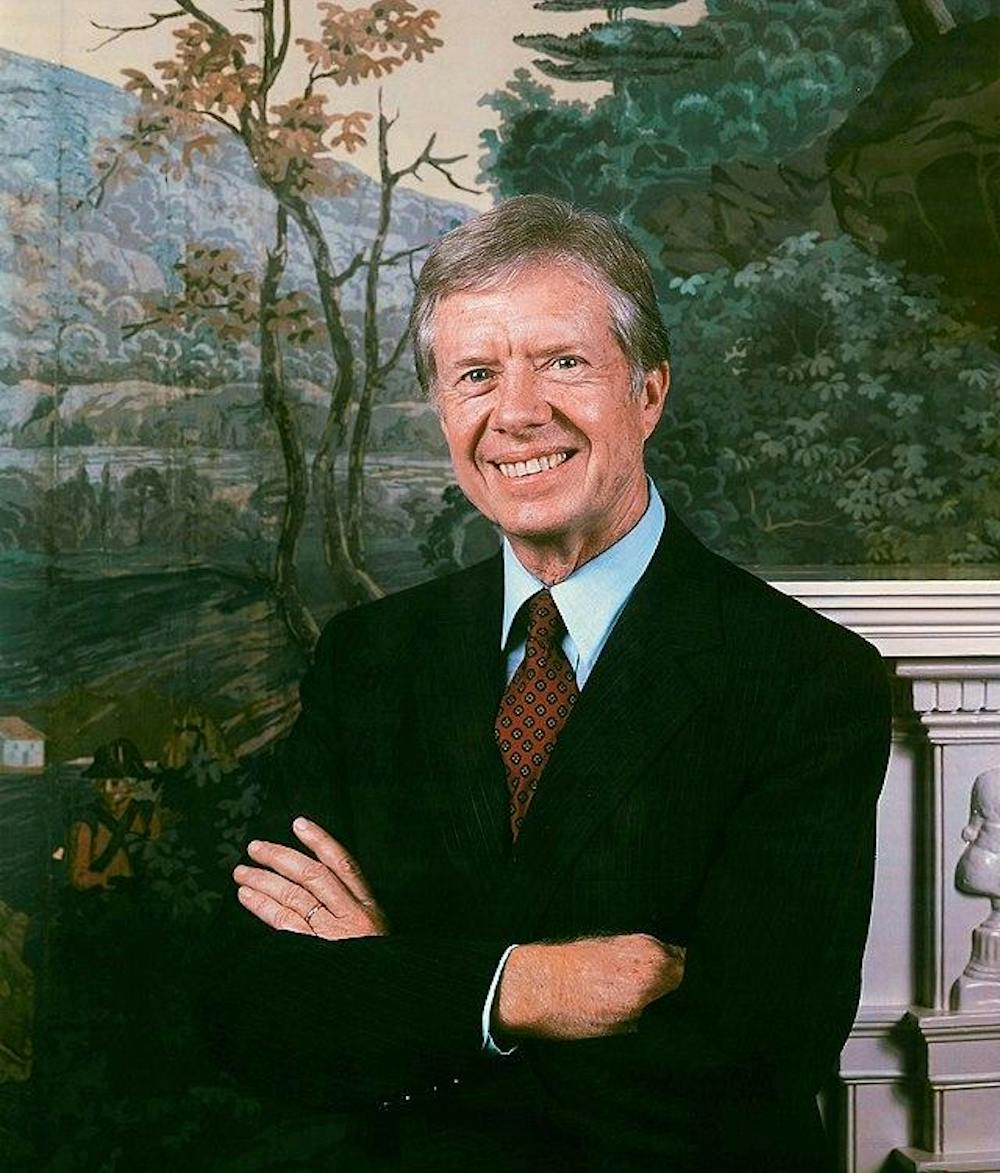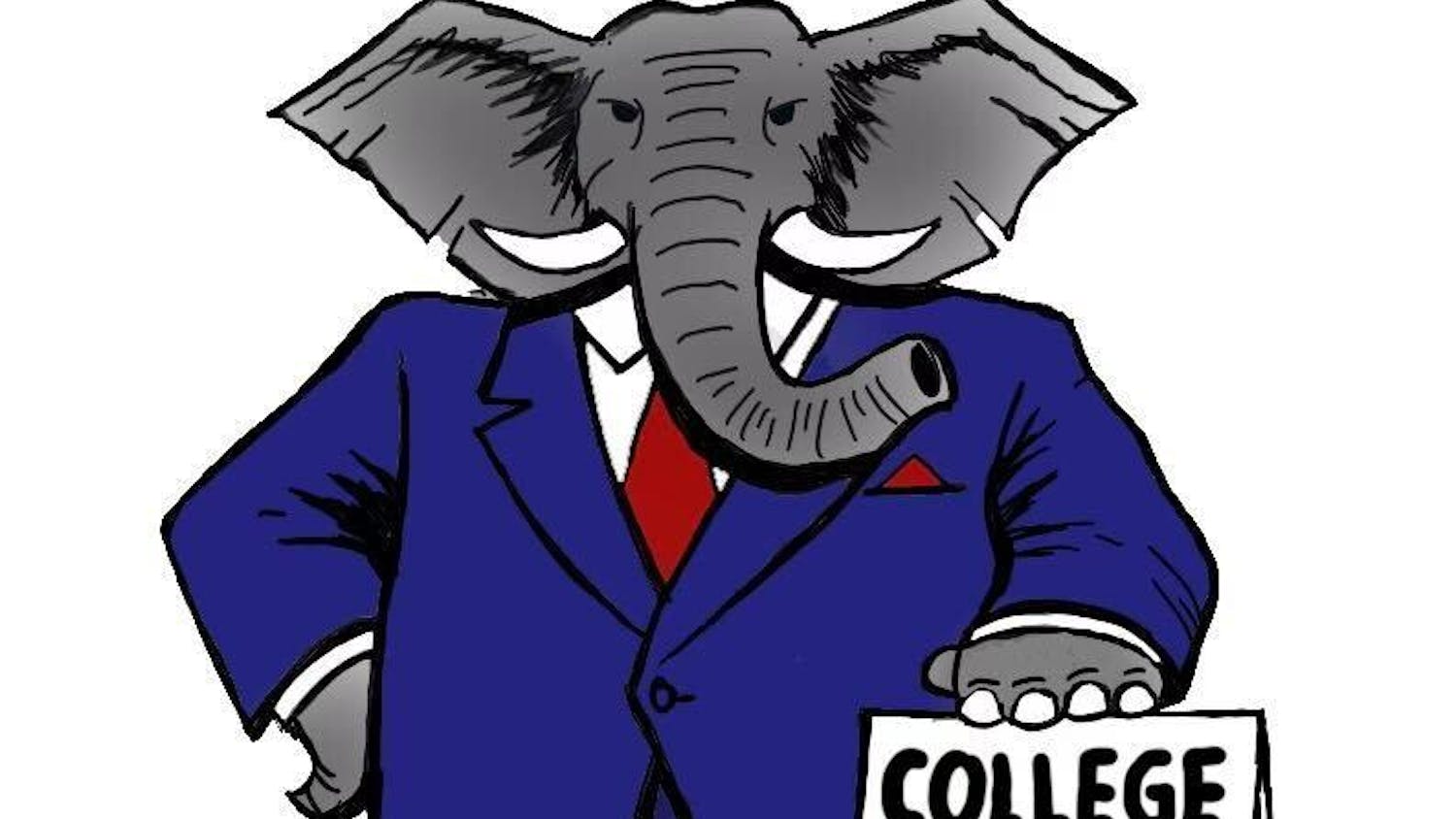In one of his famous Sunday school lessons at the Maranatha Baptist Church in Plains, Ga., former U.S. President Jimmy Carter said, “If we don’t figure out collectively how to get along with each other and take care of each other, that might be the end of humanity.” There is much to be despondent about in the world these days, but as the Emory University and greater Atlanta community celebrate Carter’s 100th birthday, it is worth reflecting on his remarkable legacy of service and investing further in service ourselves. As Carter demonstrated throughout his life, democracies depend on each of us fulfilling our citizenship responsibilities.
As I reflect on Carter’s life, I think about the role of service in my own life. I came to the United States about three decades ago as an immigrant and have lived in many cities. Each move meant that I had to repeat some of the same practices: finding my place, building community and establishing new connections. These transitions also allowed me to forge friendships, immerse myself in local cultures and histories, and get to know my new home. One key to easing my transitions while moving has been volunteering in the community — becoming an engaged citizen, not just a resident. Similarly, students at Emory can forge deeper understanding of, and connections with, communities beyond campus by becoming involved in community service.
One of my recent moves, in 2018, was to Durham, N.C. Durham’s historic significance and cultural vibrancy were not immediately evident to me, as they had been in Boston and Atlanta, where I’ve previously lived. However, as I started volunteering in the Durham community, I began to learn more about my new city. I delivered food through Meals on Wheels of Durham and engaged with StepUp, an organization that supports workforce readiness skills among people facing challenges in seeking employment. I worked as a poll worker in 2020 when more vulnerable citizens were unable to do so due to the pandemic. Through working in the community, and many wonderful conversations that I had, I learned about the city’s significance in the Civil Rights Movement, including Rev. Dr. Martin Luther King Jr.’s visits. I also learned about the 1957 sit-in at Durham’s Royal Ice Cream Parlor that preceded the more storied protest at Woolworth’s lunch counter in Greensboro, N.C. Through simple acts of service, I got to know a diverse spectrum of Durhamites, found my place and deepened my sense of belonging in a city that I was initially uncertain about moving to. Similarly, I believe there is a rich array of experiences and learning that can be derived from engaging more broadly with communities here in Atlanta.
Every year, on the fourth Saturday in October, Americans observe National Make a Difference Day. This day serves as a powerful reminder of our collective responsibility to uplift our communities through acts of service. As a researcher, I study civic identity, so I am especially concerned with how young people participate in their communities. Community service is particularly relevant for college campuses, which often serve as microcosms of larger society. While campuses like Emory are comprised of people from diverse backgrounds, they can also feel insular and detached from their surrounding cities and towns. Without intentional effort, college students miss opportunities to situate themselves in the communities beyond the proverbial campus gates.
Through acts of service, we diminish our differences and begin to see each other as collaborators rather than strangers or adversaries both within our campus community and beyond. Getting to know the community beyond campus facilitates personal growth. Interacting with people from different backgrounds enables us to cultivate empathy and understanding, qualities that are essential in today’s interconnected world. Often, this work also creates space for self-reflection, helping us find a sense of purpose that goes beyond our academic achievements or our professional pursuits. After all, college should not just be about careerism.
By working on real-world issues like climate change, educational inequality and housing inequities, instead of singularly focusing on academics or careers, we all can emulate Carter and create positive social change. For me, volunteering as a member of the Emory community has been deeply fulfilling and meaningful, whether it is mitigating health disparities among migrant farmworkers in rural Georgia or in communities in metro Atlanta.
Emory students, as you navigate your college journeys, seek out opportunities to engage with the world beyond campus. You can do so through resources like the Emory Opportunity, Partnership and Engagement Network and Volunteer Emory. These opportunities will enrich your college experience and instill a sense of connection with the broader community. Our democracy relies on each of us embracing our responsibilities as citizens, which extend beyond the ballot box to active civic participation. As we commemorate Carter’s 100th birthday, let us remember his legacy of service and take care of each other. Let us remember that every act of service contributes to the fabric of our communities and strengthens our democracy. Go ahead, find your cause and make a difference — our democracy depends on it.
Lalita Kaligotla is professor of the practice and senior assistant dean at the Nell Hodgson Woodruff School of Nursing. She also serves as executive director of the Lillian Carter Center for Global Health and Social Responsibility.










